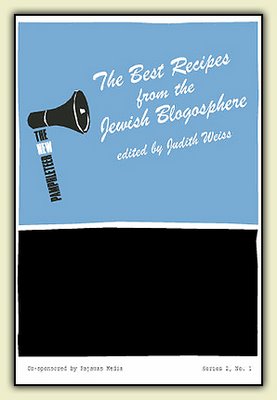One of my personal frustrations during the Holiday Season is what I call asymmetrical musical juxtaposition. That’s a lot of fifty-cent words, but they describe the feeling I have when I’m walking around the local Shopping Mall and I hear “O Holy Night” - a beautiful hymn to the birth of the Christian Savior:
O Holy Night! The stars are brightly shining,
It is the night of the dear Saviour’s birth.
Long lay the world in sin and error pining.
Till He appeared and the Spirit felt its worth.
And then, immediately afterwards, thanks to modern cultural sensitivity and ecumenism, what do we hear? The Dreidel Song.
The fucking Dreidel Song.
Oh, dreidel, dreidel, dreidel
I made it out of clay,
And when it’s dry and ready,
Then dreidel I shall play!
Lightweight stuff. Of course, so is “Rudolph, the Red-Nosed Reindeer,” but where is the heavyweight material? What do we have that corresponds in gravitas to “Adeste Fidelis”?
Look, comparing Christmas (a major-league Christian holiday, one of the Big Two) with Chanukah (a minor, post-biblical Jewish observance) is like comparing apples and oranges. Better: like comparing elephants and mice. Despite the fact that Chanukah commemorates an historically significant event with implications for the cultural development of the entire Western world, its music - at least, the music with which most people are familiar - comes off as strictly trivial.
But it doesn’t have to be that way. For there is a beautiful Chanukah melody that has nothing to do with the holiday’s external trappings - no latkes and dreidels - and everything to do with its fundamental meaning, which is the victory of the Jewish rebels led by Matisyahu and his son Judah Maccabee over the Seleucid Greco-Persians - a victory in which the Eternal delivered “the strong into the hands of the weak, the many into the hands of the few, the corrupt into the hands of the pure in heart, the guilty into the hands of the innocent.”
Ma-oz Tzur (Rock of Ages)
Ma-oz tzur yeshuati,
L’kha na-eh l’shabei-ach.
Tikon beit t’filati
V’sham todah n’zabei-ach.
L’eit takhin matbei-ach
Mitzar hamnabei-ach
Az egmor b’shir mizmor
Chanukat ha-mizbei-ach.
The music? Stirring and powerful, able to hold its own against the most Christmassy of Christmas music. The popular English translation fits the meter of the original:
Rock of ages, let our song
Praise Your saving power;
You, amid the raging foes,
Were our sheltering tower.
Furious they assailed us,
But Your arm availed us,
And Your word
Broke their sword
When our own strength failed us.
The literal translation is a little more violent, but it gets the point across. Let’s not forget that the holiday celebrates a military victory:
O mighty stronghold of my salvation,
To praise You is a delight.
Restore my House of Prayer and there
We will bring a thanksgiving offering.
When You will have prepared the
Slaughter for the blaspheming foe,
Then I shall complete with a song of hymn
The dedication of the Altar.
Dreidel, schmeidel! Jingle bells, schmingle bells! Let’s hear more “Ma-oz Tzur”!
O Holy Night! The stars are brightly shining,
It is the night of the dear Saviour’s birth.
Long lay the world in sin and error pining.
Till He appeared and the Spirit felt its worth.
And then, immediately afterwards, thanks to modern cultural sensitivity and ecumenism, what do we hear? The Dreidel Song.
The fucking Dreidel Song.
Oh, dreidel, dreidel, dreidel
I made it out of clay,
And when it’s dry and ready,
Then dreidel I shall play!
Lightweight stuff. Of course, so is “Rudolph, the Red-Nosed Reindeer,” but where is the heavyweight material? What do we have that corresponds in gravitas to “Adeste Fidelis”?
Look, comparing Christmas (a major-league Christian holiday, one of the Big Two) with Chanukah (a minor, post-biblical Jewish observance) is like comparing apples and oranges. Better: like comparing elephants and mice. Despite the fact that Chanukah commemorates an historically significant event with implications for the cultural development of the entire Western world, its music - at least, the music with which most people are familiar - comes off as strictly trivial.
But it doesn’t have to be that way. For there is a beautiful Chanukah melody that has nothing to do with the holiday’s external trappings - no latkes and dreidels - and everything to do with its fundamental meaning, which is the victory of the Jewish rebels led by Matisyahu and his son Judah Maccabee over the Seleucid Greco-Persians - a victory in which the Eternal delivered “the strong into the hands of the weak, the many into the hands of the few, the corrupt into the hands of the pure in heart, the guilty into the hands of the innocent.”
Ma-oz Tzur (Rock of Ages)
Ma-oz tzur yeshuati,
L’kha na-eh l’shabei-ach.
Tikon beit t’filati
V’sham todah n’zabei-ach.
L’eit takhin matbei-ach
Mitzar hamnabei-ach
Az egmor b’shir mizmor
Chanukat ha-mizbei-ach.
The music? Stirring and powerful, able to hold its own against the most Christmassy of Christmas music. The popular English translation fits the meter of the original:
Rock of ages, let our song
Praise Your saving power;
You, amid the raging foes,
Were our sheltering tower.
Furious they assailed us,
But Your arm availed us,
And Your word
Broke their sword
When our own strength failed us.
The literal translation is a little more violent, but it gets the point across. Let’s not forget that the holiday celebrates a military victory:
O mighty stronghold of my salvation,
To praise You is a delight.
Restore my House of Prayer and there
We will bring a thanksgiving offering.
When You will have prepared the
Slaughter for the blaspheming foe,
Then I shall complete with a song of hymn
The dedication of the Altar.
Dreidel, schmeidel! Jingle bells, schmingle bells! Let’s hear more “Ma-oz Tzur”!










No comments:
Post a Comment